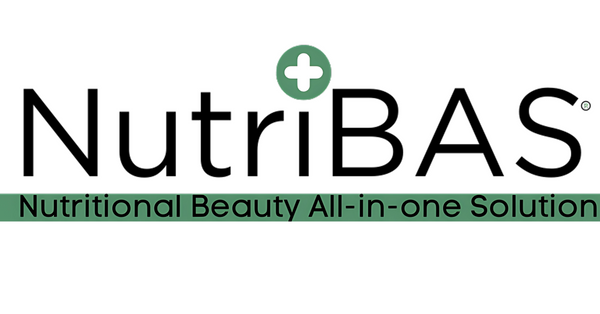Nutribas and its type
Nutribas is the only powder collagen that has all 5 collagen types and 4 important nutrients:
- Collagen I
- Collagen II
- Collagen III
- Collagen V
- Collagen X
- MCT Oil
- Hyaluronic Acid
- Biotin
- Vitamin C
Are there different types of collagen?
Some 28 types of collagen types have been identified. They differ by how the molecules are assembled, the cell components that are added and where the collagen is used in your body. All collagen fibrils have at least one triple helix structure. There are 5 principals collagen types as cited below:
Type I Collagen
Type I Collagen is the most common type of collagen found naturally in the body. It accounts for 90% of the body’s collagen stores and is found just below the surface of the skin in the dermis. Type I collagen can be found in most supplement types because of its wide range of potential benefits.
Type I collagen is found in bovine, marine and eggshell membranes. Current research into the potential biomedical uses of Type I collagen suggests that it may be used to increase nucleation and development of bone mineral crystals. While more research is necessary, many consumers, after speaking with their doctors, choose to take collagen Type I as a supplement alongside their healthy lifestyle choices, seeking to support healthy hair, nails and skin.
Type II Collagen
Type II collagen is found in both marine and chicken products. Current research on the efficacy of Type II collagen is limited, but preliminary studies conducted on people with knee osteoarthritis found promising levels of pain reduction with the use of Type II collagen in conjunction with acetaminophen. Type II collagen is also less tightly packed than Type I collagen, potentially indicating that the body could more easily break down and absorb collagen in this form.
While Type II collagen may support pain reduction for common joint problems, there is still more research needed regarding benefits like healthy joint inflammation response, the rebuilding of damaged joint cartilage and increases in range of motion. People with allergies to fish or chicken should consult their doctor before taking supplements containing Type II collagen.
Type III Collagen
Type III collagen is the second most common type of collagen found naturally in the body. This type is different from the others because of its singular alpha chain. The other types of collagen have multiple alpha chains. In conjunction with Type I, Type III collagen is thought to support gut, muscles, blood vessels and the uterus. Bovine products are the most common source of Type III collagen.
While some studies show the body may utilize Type III collagen to help fight inflammatory diseases, the body will use amino acids in whatever way it needs, putting the role supplements can play in this process in question. Taking a specific collagen supplement to target specific areas of the body will not necessarily be successful.
Type V Collagen
Type V collagen is found naturally in the cornea where it helps control collagen fibril sizes in order to maximize transmission of light. This type of collagen works naturally in conjunction with Types I & III and is responsible for optimal fibrillary formation and tissue quality in the human body. Type V collagen is also known to support bone matrix, corneal stroma and the interstitial matrix of muscles, liver, lungs and placenta. Promising results of research on Type V collagen supplements include potential benefits to eye health, cell membranes and the tissue found in the placenta.
Although scientists understand how the body uses its natural stores of Type V collagen, more research is needed to determine whether the body can break down Type V collagen supplements and use them to support these areas.
Type X Collagen
Type X collagen is responsible for bone formation and can be found in joint cartilage. It is a network-forming collagen and may present an opportunity to identify serious conditions. Specifically, people with an elevated amount of Type X collagen have a higher propensity for rheumatological disorders affecting bone and cartilage.
Claims from collagen supplement companies suggest that Type X collagen can be used during recovery from limb damage and broken bones. This is not fully backed by current studies, which are only able to prove that Type X collagen naturally found in the body is responsible for bone formation and may be helpful in identifying underlying rheumatological disorders. There is no specific evidence that suggests taking supplements with Type X collagen will allow the body to directly heal an injured area.
Vitamin C
It is usually found in citrus fruits, oranges, strawberries, bell peppers, broccoli, Brussels sprouts and potatoes.
Vitamin C, also known as ascorbic acid, is necessary for the growth, development and repair of all body tissues. It's involved in many body functions, including formation of collagen, absorption of iron, the proper functioning of the immune system, wound healing, and the maintenance of cartilage, bones, and teeth.
Vitamin C usually helps with these conditions stress, colds, heart disease, arthritis skin aging to name a few. When you consume a serving of Nutribas collagen, it is equivalent to taking 1/2 cup of orange juice.

